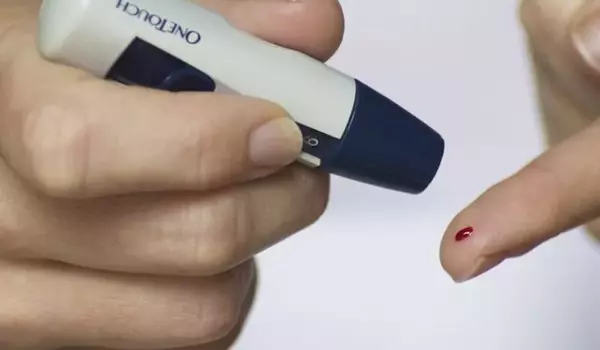Blood sugar level or blood glucose level is considered as a primary indicator to determine the health condition of an adult person. Maintaining normal blood sugar levels for adults and the diabetic patient is challenging. Because the pancreas (an organ located in the abdomen) of diabetic people doesn’t respond properly to blood sugars the way it should.
Our digestive system converted food into glucose and supply to our bloodstream to distribute it all over the body. Therefore, after a couple of hours of eating blood sugar levels increase. To maintain this sugar at a certain level, the pancreas releases insulin to absorb this high blood sugar with the help of body cells. Thus, our bodies control normal blood sugar levels for adults. But for diabetic people, either their body turns into insulin resistance or they have insulin deficiency. As a result, blood glucose level increases and cause Diabetes.
Normal blood sugar levels for healthy adults and Diabetic person
Blood sugar level or Blood Glucose level may vary for different factors. However, this level fluctuates throughout the day. For healthy person
- at the time of fasting the range is 3.9 to 6.1 mmol/L (70 and 110 mg/dL).
- without diabetes and not fasting should be below 6.9 mmol/L (125 mg/dL)
- after a couple of hours of eating food, for non-diabetics, temporarily up to 7.8 mmol/L (140 mg/dL) or slightly more
The target range for diabetic people should be
- 0 –7.2 mmol/l (90–130 mg/dL) before meals and
- less than 10 mmol/L (180 mg/dL) two hours after meals (as per the American Diabetes Association)

Blood Glucose Level Tests and diabetic confirmation
Doctors recommended a few procedures for blood glucose level tests to find out normal blood sugar levels for adults.
- Fasting plasma glucose test
- Oral glucose tolerance test
- Random check
Fasting plasma glucose test:
Usually, people abstain from food at night that’s why doctors perform blood glucose level tests in the morning before taking breakfast. After fasting for 8 hours if the blood glucose level remains higher than 7 mmol/L or 126 mg/dL, the person is declared diabetic.
Oral glucose tolerance test:
After getting a fasting plasma glucose test positive, doctors suggest performing other blood glucose level tests to confirm the diabetes condition. To do the test, after 8 hours of fasting special sugary drink is provided to the patient. 2 hours later sugar level test is performed. If the results are higher than 11 mmol/L or 200 mg/dL, the person is declared diabetic.
Random blood glucose level tests:
This test is also known as RBS test. A blood sample is taken at any random time irrespective of meal to do the test. If blood sugar level found more than 10 mmol/L or 200 mg/dl in RBS test would indicate diabetes. However, a few additional signs with this test confirm diabetes-like peeing more than usual, most of the time feeling thirsty, and losing a significant amount of weight.
Uncontrolled long-term diabetes can damage any part of your body. It may damage kidneys, eyes, nerves, heart, and even lead to organ failure. Sometimes high blood sugar levels are also responsible for amputations and pregnancy failures. This is why it is very essential to keep control of normal blood sugar levels for adults and perform blood glucose level tests regularly to confirm blood glucose at a normal diabetes level.
